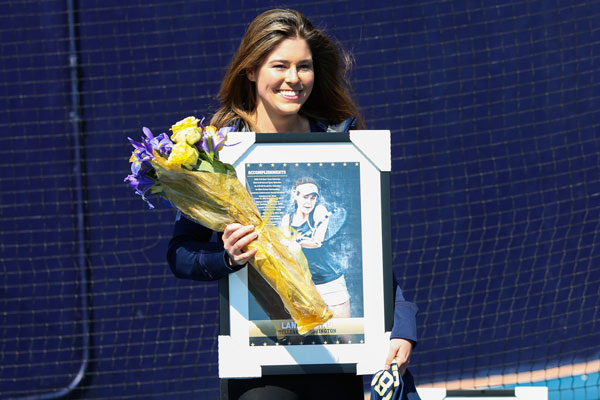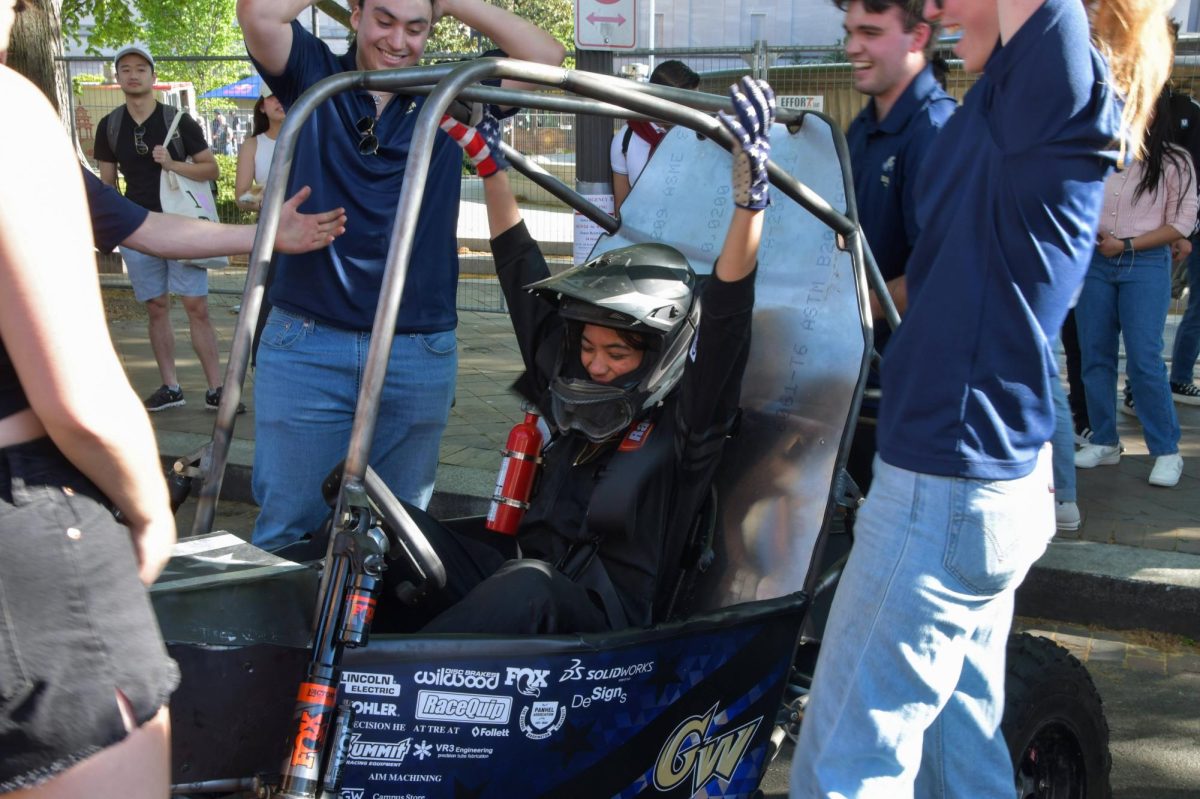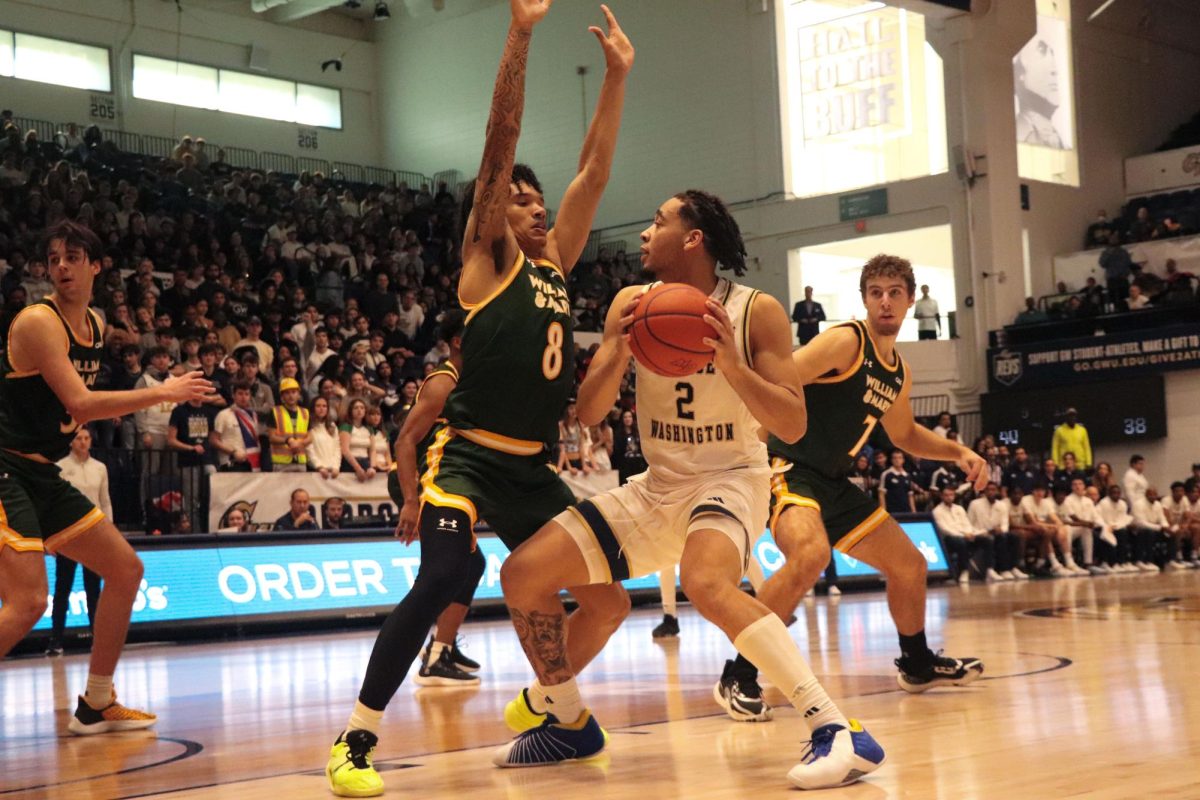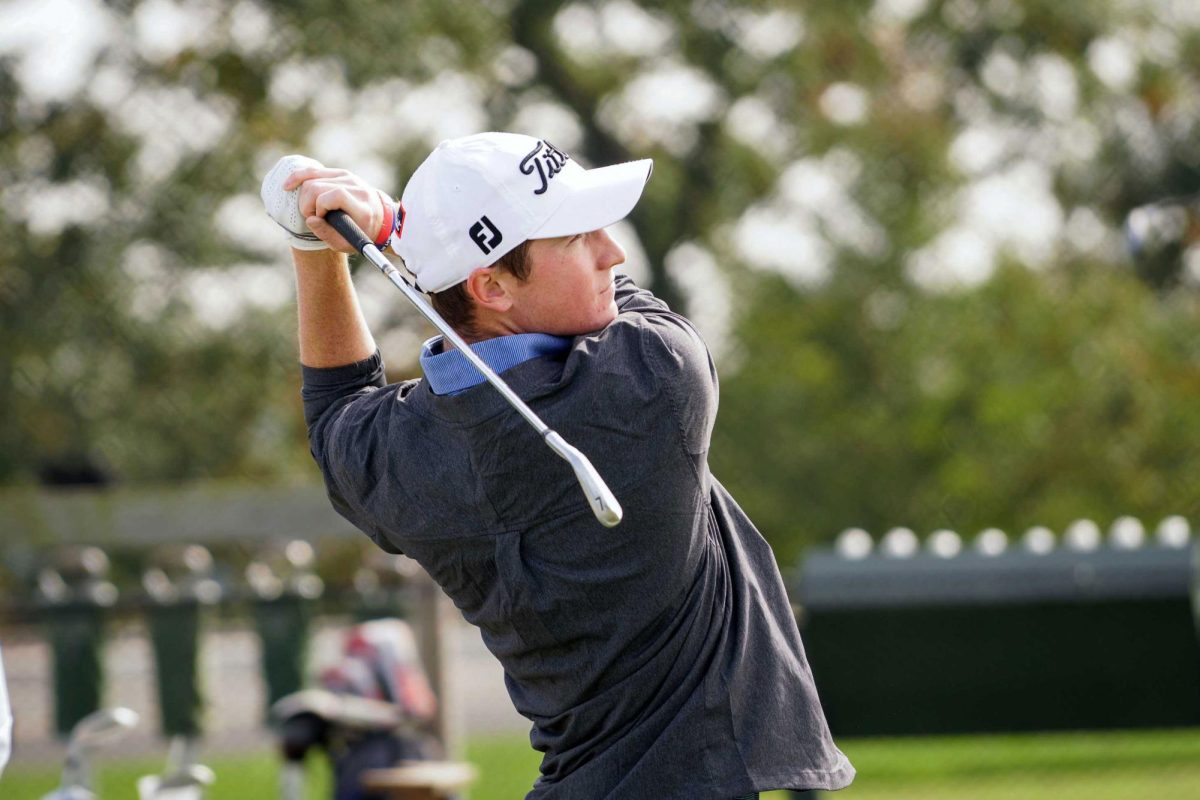Lana Robins, a senior on the women’s tennis team, sits down to work.
She looks at a case file and listens to what evidence her bosses, U.S. attorneys who work on human trafficking cases, tell her to look for: a “Romeo pimp” trying to manipulate a victim into refusing to testify or an admission to a friend.
She begins playing back tapes of calls from jail, often deciphering poor English through jail phone lines, listening for an admission or for something that could help the prosecutors.
Volunteering as an intern with the U.S. Attorney’s Office for the Eastern District of Virginia as part of the office’s anti-trafficking task force makes Robins just one of GW’s athlete who has dedicated her spare time to service: GW came in first as the most active community service athletic department in the nation in a competition in the fall.
Robins said she has been passionate about putting an end to human trafficking because people don’t realize how common it is in the U.S.
“Domestic minor sex trafficking is actually a big problem in this country, especially for vulnerable populations like immigrants and foster children. And that just didn’t really sit well with me,” Robins said.
When Robins is finished with her work, she opens up Helper Helper, an application on her phone that the athletic department uses to log community service hours, and records her time served.
Top of the field
Over a three-month span in the fall, more than 100 schools across NCAA divisions competed using Helper Helper to track community service hours. The teams were ranked according to hours served and participation rates among teams. Overall, student athletes across all schools logged 71,526 total hours as part of the competition.
Robins was ranked among the top 10 student-athletes in the country for the number of community service hours she logged throughout the semester.
GW had two teams, lacrosse and gymnastics, among the top five individual women’s teams nationwide in hours per student athlete. Members of GW’s gymnastics team logged the second most hours on average, at 25 hours per student athlete, and lacrosse came in fourth with 22.
Robins was sidelined by an injury in the fall, which gave her extra time to volunteer, but her interest in helping victims of human trafficking was always there, she said.
Experience inside and out of the classroom
The summer before Robins’ junior year, she worked for Rep. Dave Reichert, R-Wash. Reichert co-sponsored the Preventing Sex Trafficking and Strengthening Families Act, a bill passed in 2014 aimed at reducing sex trafficking of children in foster homes.
Robins was curious. She started searching for mentions of human trafficking news in the New York Times and was surprised how common the trafficking of minors was, even in the U.S.
Then, she realized GW had a course about human trafficking, taught by two assistant U.S. attorneys, Michael Frank and Zachary Terwilliger.
On the first day of class, Robins sat in the front row.
“I’m like, this is something I’m really interested in and people behind me are like, ‘They’re federal prosecutors, they’re going to ask you so many questions, they take down mobsters,’” Robins said. “But they’ve turned out to be two of my biggest mentors.”
In the third week of class, Robins asked her professors how she could get more involved. They suggested that she intern for Shared Hope International, an organization that combats sex trafficking. Robins spent the summer as a policy intern for the non-governmental organization. She got back in touch with her professors at the end of the summer, and they asked her if she would like to come work at the U.S. attorney’s office.
“I was like, ‘Yes, please!’” Robins said.
A future in criminal law
Robins said that she spends the majority of her time listening to jail calls. There’s a gold mine of evidence in the calls pimps make from jail, sometimes even confessions, but Robins said that many attorneys don’t ever go through it.
“A lot of fun conversations, that’s for sure, but some of them are really valuable. We’ve actually used a lot of the work I’ve done in three different court cases,” Robins said.
Robins said that some defendants have lines they repeat so often they become office jokes. One man said ‘You know what I’m saying,’ at the end of nearly all his sentences.
It isn’t always funny, though. Robins often has to work with sensitive and difficult subject matter.
When she worked at Shared Hope, one of Robins’ responsibilities was to comb through all media mentions – 600 Google alerts worth of them – of child abuse and sex trafficking. One in particular, a 70-year-old man who was abusing children going to the elementary school next to his house, still sticks with her.
“He’d see kids passing every day so he started handing them cookies and ‘Oh, if you come inside my house I’ll give you a cookie,’” Robins said. “And that was one where like, OK, self-care comes in. You’ve got to leave the office at the office and that was where I learned that lesson.”
It was a good time to learn it. Robins also recalls being handed crime scene photos during a case update her first week on the job at the U.S. attorney’s office.
“They handed me actual crime scene photos of one of the girls who had died and, it’s just like something straight out of CSI. You don’t think this like, actually happens, but you see things like her cell phone at the table, pills on the counter, and you’re like, ‘wow, this is real life,’” Robins said.
It can be sobering work, but Robins’ internship has made her want to become a criminal lawyer. She had always been interested in law but had thought more about tax or energy law. Now, Robins wants to be a U.S. attorney.
Plus, she has a pretty good support system.
“Once I go home I have a puppy and I just kind of forget about everything, so that’s what I do to get over it,” Robins said. “But when I’m at work you just kind of use it to drive you.”








